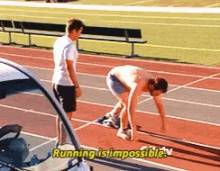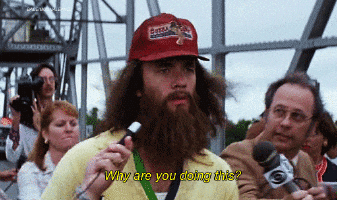What If Being Bad at Something is The Best Medicine For You?
Turns out not being good is profoundly liberating.

A little over a month ago my cousin decided she wanted to run a half-marathon for her fiftieth birthday.
The text she sent included an entire weekend full of dancing, dinners, and opportunities to connect before the race on Sunday. In my opinion, it feels like a really meaningful way to celebrate a birthday.
Two minutes later, I received this separate text from my sister, who at that point had never run a mile in her entire life:
Do i start training to run and do the half? LOL. I’ve always wanted to take up running and do a race….Do it with me, c’mon. It’s for our cousin. If our uncle can do it and my clients can do it, we can too!!!! Who says I have to be sad and washed up at 32????”
I’ve never been gung-ho about running, but I’ve always been semi-curious about road races. Old journals from my twenties are filled with variations of bucket lists and “running a marathon” usually made the cut, although it was pretty low on the priority list.
I would say I was more or less passively interested, but I wanted to support my sister so I decided to jump on the bandwagon. As I imagined, I’m not great at it… but it’s a really freeing realization.
I know that I’m never going to compete in the Olympics or become an ultra runner. Not because I think I suck or I’m weighed down by self-doubt, but because I’m honest with myself (lol), I’m probably past my physical peak, and it’s not something I care enough about to go through the agony and rigorous self-discipline it would take to even attempt to get to that level of athleticism.
Because of this, there’s no pressure.
When you’re not trying to be the best at something, there’s no one to impress, no feelings of personal failure, no competitive edge to be had.
You’re free to be perfectly adequate, splendidly mediocre, and no one cares.
There’s no space for self-criticism, shame, or any of the things that go along with knowing you have a knack for something but aren’t “living up to your potential” or “using your gifts” because you’ve already accepted that you’re going to be refreshingly unremarkable.
I’m a better sprinter than endurance athlete and when I did run track, I only competed in short races. At soccer practice, I was always last in our long runs, plagued with shin splints or faking a dramatic asthma attack and literally clinging to life at the back of pack.
And honestly, that’s just fine.
Being bad at something is an unexpected gift of peace.
Ultimately, I don’t care all that much about being good at running.
It doesn’t really impact my life if I’m not, which is why it’s so freeing.
In contrast, I care deeply about being a good writer, which means it feels like there’s more at stake if I write poorly. I don’t have a deep emotional attachment to my running splits the way I do about how my art is received.
When it comes to sharing my writing, there is more fear, more resistance, more ego, more “to lose.” It comes with a lot of baggage that I’m constantly trying to work through and because of this, it’s often far more tiring.
Developing the courage to fling myself into my art, knowing I’m not the best but claiming my voice anyway is important for my growth, but sometimes it’s just exhausting.
Sometimes, I want to break free of feeling like I need to push myself for more, or achieve something great, or “be good” or self-critique, or care what people think, or second-guess my fucking sentence structure.
Sometimes, I simply want to exist and dissolve into the flow of doing something for the sake of doing it.
And while I do find my flow state with writing, (it’s why it’s so fulfilling) I also find frustration, perfectionism, and a pervasive self-consciousness.
Running gives me permission to disappear into my mind and hide away from the insistent and often disapproving voice of my inner critic.
It’s helped me be gentle with myself in other areas of my life that often feel weighed down by self-judgment or insecurity.
Our creative lives are often found in the empty spaces.
Many ideas come to you when you have the space to be alone.
Some of the best ideas come to you when you have the space to be alone, in silence, while moving.
In his book “Digital Detox” Cal Newport talks about how many thinkers and artists used time spent alone to problem-solve and introspect, often leading to the inception of great works. Henry David Thoreau used his walks from Walden Pond (his cabin in the woods) to Concord rather than using a horse and wagon, so he had the space to ponder, question, and think.
I’m not walking the 17 miles to work everyday, but like a poor man’s Thoreau, I too am finding a direct correlation with my levels of inspiration and the empty space my runs provide.
Maybe it’s that running increases my energy levels and I have more bandwidth to write.
Maybe it’s that my newfound running motivation is seeping into other areas of my life.
Or maybe if it’s like the walks from Walden Pond, where there’s enough quiet, embodied time to receive ideas and messages that eventually become limbs of my creative work.
What I know for sure is that running without having to be good at it has given me a pass to care less.
Doing something that isn’t about achievement or proving something to myself (like most things that nourish us) is a form of kindness and self-love I’m relearning how to show myself.
Running as a means of existing without expectation has been a form of moving meditation and temporary refuge for my softer self, and that is good enough for me.



